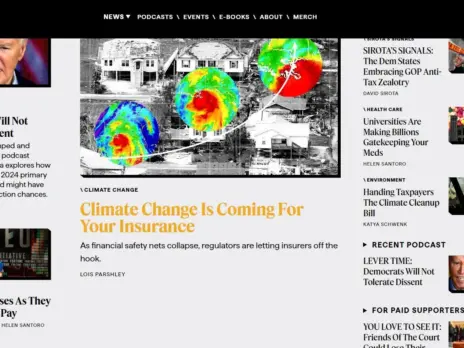
A quarter of people say they don’t check the truth of articles they see on social media, according to new Ofcom research shedding light on how people deal with fake news.
The regulator found that as online news consumption grows (half of people now get their news through social media platforms), people are less likely to check the facts.
Ofcom’s report on adults’ media use and attitudes, published today, showed that 26% of social media users said in autumn last year that they don’t tend to check the information in articles they see in social media.
This compares to 18% who said the same in 2018 and 23% in 2017.
Internet users in general are also less likely to make checks on the information they find, up from 23% in 2018 to 29% last year.
The checks suggested by Ofcom included whether it was by an organisation they’re familiar with and that they think is trustworthy, if the same information appears elsewhere, how professional the website looks, and whether the person who shared it was someone they trust.
Ofcom said that in one of its studies, “although participants claimed to access an increasingly eclectic range of news sources from across the world, via a mix of social media, apps, websites, podcasts, TV and radio, their judgement of the trustworthiness of a news source or story tended to be heavily influenced by the degree to which it reflected their own attitudes.
“Even those who claimed to access a range of views often sought those views from like-minded sources.”
On search engines, 58% of people are aware that some of the results will be accurate or unbiased and others won’t be, but 20% think that if they were listed by the search engine they must contain accurate and unbiased information. A further 18% don’t think about this at all and just use the sites they like the look of.
A separate Ofcom report published today on online harms, produced with the Information Commissioner’s Office, showed that 19% of 2,080 adults surveyed in February said without being prompted that they were worried about fake news – this was down slightly from 22% in 2019.
The study defined fake news as stories that are false or made up and written deliberately to mislead.
The amount who said they had come across fake news in the past year also went down, from 25% in 2019 to 16%.
But the proportion of children aged 12 to 15 who had seen fake news stayed about the same, on 27%.
Almost three-quarters (72%) of adults who saw fake news saw it on social media – 22% was through a search engine, 16% was on a messaging service, 15% was on a news platform and 11% through a video sharing website.
Ofcom’s latest Covid-19 specific research found that 30% of people came across false or misleading information about the virus in the week ahead of 12 June – down from a peak of 50% in weeks three and five of lockdown.
Regulation
Ofcom is making preparations to begin regulating UK-based video-sharing platforms and will publish a call for evidence this summer to inform its guidance on what these companies should do to protect users from harmful content.
A growing proportion of adults think regulation is already in place for social media (74% this year versus 59% in 2019) and video-sharing sites (62% now and 54% last year).
Ofcom said this was “possibly due to platforms being more publicly proactive about ways to mitigate harms experienced by users”.
Nonetheless two-thirds of social media users and 57% of video-sharing site users still favour increased regulation.
Picture: Pixabay
Email pged@pressgazette.co.uk to point out mistakes, provide story tips or send in a letter for publication on our "Letters Page" blog






